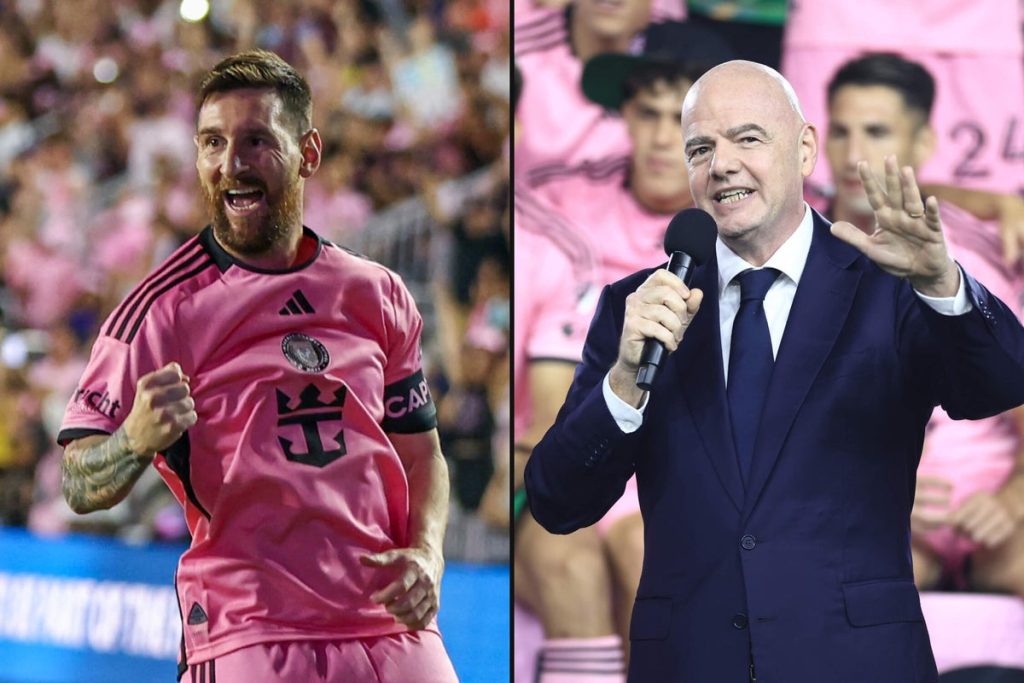Inter Miami, led by soccer superstar Lionel Messi, has qualified for the newly expanded Club World Cup by winning the 2024 Supporters’ Shield in the MLS. The qualification decision has raised questions around the authenticity of the competition, as FIFA was in desperate need of a major financial success. Miami’s place in the tournament was the result of securing the Supporters’ Shield for the best regular season record in MLS. It’s Miami’s first MLS silverware since joining the league in 2020, following their victory in the Leagues Cup.
FIFA president Gianni Infantino praised Miami as “consistently the best club on the field of play” in the U.S. and deemed them “one of the best clubs in the world” during the Supporters’ Shield celebrations. These claims have drawn criticism, with arguments that Miami has only proved to be the best in the Eastern Conference. Doubts have also been raised regarding their international standing, questioning if they could hold their own against globally recognized teams not based in the U.S.
Miami is the 31st club to qualify for the Club World Cup, and the only one to have done so via a domestic league, with other entries requiring continent-wide competition wins or high-ranking status. The allocation of teams varies among continents, with Africa and Asia having four spots each, Europe having 12, and North and Central America having four. South America has five spots, and one is given to the host country, which in this case, is Miami.
Thus far, the tournament’s qualifying criteria have allowed teams like Chelsea, who won the Champions League final in 2021, to secure a place. Even Red Bull Salzburg, despite a poor Champions League performance this season, qualified due to their performance in the competition over the past four years. Despite some seemingly questionable qualifying criteria, it is argued that a team from the host country should be given a spot, as is the norm in the World Cup tournament.
Suggestions have been made that a better approach may have been to offer a wildcard spot, as seen in other sports such as tennis. This could have ensured U.S. team involvement and bolstered audience figures. Miami’s involvement could have been a beneficial move, drawing in crowds hoping to see Messi compete against old rivals like Real Madrid or former Barcelona mentor, Pep Guardiola’s Manchester City.
However, FIFA’s decision to award the spot to the Supporters’ Shield winners, rather than considering other potential methods such as selecting MLS Cup winners or a one-off game between the Shield and Cup winners, is considered to invite unnecessary ridicule. Despite being dubbed as the “greatest, most inclusive and merit-based global club competition”, critics argue that the tournament is still struggling for respectability.


